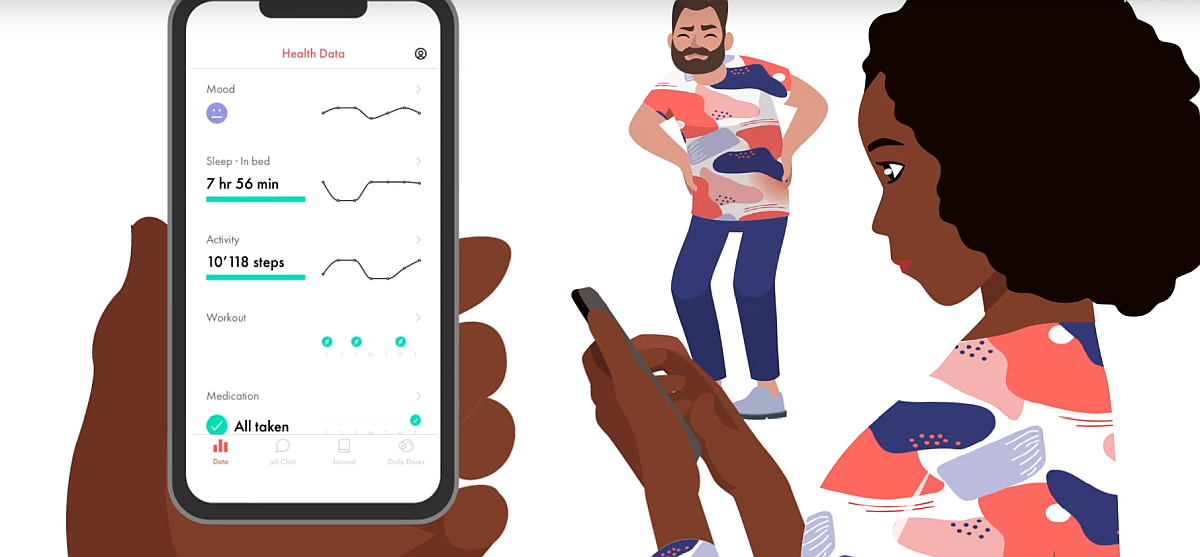
In two large randomized controlled trials (RCTs) conducted with patients diagnosed with two different chronic conditions, the digital health app juli demonstrated efficacy by improving outcomes in people with either asthma or depression compared to participants using an active control app.
The two RCTs included more than 500 patients combined and were completed in June 2023. They were conducted in collaboration with University College London (UCL), ranked among the top 10 universities for life sciences and medicine globally. Juli joins a small group of digital health apps to have completed RCTs, considered the gold standard for the evaluation of medical interventions. The RCTs demonstrated the efficacy of the company's chronic condition management platform across multiple conditions.
"Digital health apps have the potential to improve patients' conditions, but most have not been rigorously assessed in randomized controlled trials," noted Joseph Hayes, MD, MSc, PhD, Professor of Psychiatry at UCL and co-founder of juli. "Our studies not only demonstrate the effectiveness of the platform; they also show that juli works across the very different conditions of asthma and depression, validating our approach to cover multiple chronic conditions, including their comorbidities."
In both studies, the primary endpoint of statistically significant improvements compared to control was achieved, with p=0.020 in the asthma RCT and p=0.045 in the depression RCT. After 8 weeks using juli, both asthma and depression patients improved in the clinically validated outcome measures used in clinical practice, consistent with meaningful clinical improvements experienced by patients:
- In the asthma RCT, patients using juli experienced a mean +5.33 point improvement in their Asthma Control Test (ACT) scores, rising from 12.60 to 17.93
- In the depression RCT, patients using juli experienced a mean -5.31 point improvement in their Patient Health Questionnaire-8 (PHQ-8) scores, dropping from 16.09 to 10.78
"The rigor with which the team at juli studied their product is exceptional; I know very few early stage companies willing to invest the resources needed and subject their product to one RCT, let alone two," said Dr. Joseph Kvedar, Professor of Dermatology at Harvard Medical School who serves as a scientific adviser to juli and is world renowned as a telehealth and virtual care pioneer. "The fact that they've now demonstrated efficacy across two conditions as diverse as asthma and depression validates their approach and is very encouraging."
AI driven digital health platform
Juli is an AI-driven chronic condition management platform that engages users, members and patients to improve and self-manage their own health while offering their healthcare providers insights from sub-episodic health data. It helps people manage a variety of chronic conditions including asthma, chronic obstructive pulmonary disease (COPD), generalized anxiety disorder, major depressive disorder, bipolar disorder, migraine, hypertension, and chronic pain among others, and also manages the comorbidities between these conditions.
The juli platform combines evidence-based approaches to improve chronic health conditions. These include collecting data from electronic medical records, smartphones, wearable devices and the environment, as well as patient responses to daily questions and bi-weekly clinically validated, disease-specific questionnaires, and presenting these data to the patient in a usable manner. Juli then suggests personalized micro-behavioral changes in a gamified manner to help alleviate symptoms of the conditions, and adjusts suggestions based on how users respond.
(Press release / SK)























































Please login or sign up to comment.
Commenting guidelines